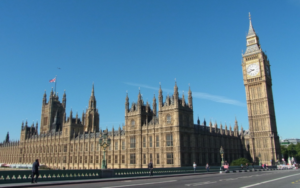 In the Spring Budget 2023 the Chancellor, Jeremy Hunt, announced a number of pension changes, including increasing the annual personal allowance, abolishing the lifetime allowance and increasing the money purchase annual allowance. These are significant changes to the current pension rules and in this article we look at these in more detail and how they might affect you. You may also be interested in our full Spring Budget 2023 round-up which lists everything that was announced.
In the Spring Budget 2023 the Chancellor, Jeremy Hunt, announced a number of pension changes, including increasing the annual personal allowance, abolishing the lifetime allowance and increasing the money purchase annual allowance. These are significant changes to the current pension rules and in this article we look at these in more detail and how they might affect you. You may also be interested in our full Spring Budget 2023 round-up which lists everything that was announced.
Pension changes in the 2023 Budget
The Chancellor announced that the pension lifetime allowance of £1,073,100 is to be scrapped. This Lifetime Allowance is the limit on the amount of pension benefits you can build up over your lifetime and still enjoy the full tax advantages associated. Savers who exceeded the lifetime pension allowance are liable to a tax charge of 25% on the additional income from their pension and 55% if the excess is withdrawn as a lump sum. This is known as the Lifetime Allowance (LTA) charge. The LTA charge will be removed from April 2023 before the LTA is abolished entirely from April 2024.
It was also announced that the annual allowance will be increased. This is the maximum amount that can be paid into a pension each tax year and receive tax-relief upon. The annual allowance will rise from £40,000 to £60,000 a year from April 2023. Any money you pay into a pension over this new limit will not receive tax-relief and you will still need to pay an annual allowance charge.
The Chancellor also announced a change to the Money Purchase Annual Allowance (MPAA). This is how much you can pay into your pension, after you have already accessed pension benefits, and still benefit from tax-relief. If you exceed this limit you will be liable to a tax charge and won't receive tax-relief either. Previously, the Money Purchase Annual Allowance was set at £4,000 per tax year, but this will now increase to £10,000. Those affected still won't be able to use pension carry forward rules as a way to increase the amount that they can pay into a defined contribution pension.
Finally the tapered annual allowance is also increasing. The tapered annual allowance is the reduced pension annual allowance that is applied to those who have an "adjusted income" over £240,000 a year. For every £2 of income earned above the £240,000 threshold the normal annual allowance is reduced by £1. This tapering stops once the annual allowance reduces to £4,000. From April 2023 the lower limit of the tapered annual allowance will increase from £4,000 to £10,000, in line with the increase to the Money Purchase Annual Allowance. In addition, the threshold for the "adjusted income" will rise from £240,000 to £260,000 from 6th April 2023. Those impacted by the tapered allowance will still be able to use pension carry forward rules to make larger pension contributions in the current tax year.
What difference will the Budget 2023 pension changes make?
Prior to the announcement of the Budget 2023 pension changes, existing pension rules meant that some workers faced additional tax bills as a result of building sizeable pension pots or significant final salary benefits. The LTA charge led to some high-earners retiring early in order to avoid hitting the lifetime limit. The government is hoping the pension changes will incentivise NHS consultants, GPs and other in-demand professionals to postpone retirement or maintain full-time hours instead of scaling back. However, the policy will also benefit all high-earners and those who have already built up a comfortable level of retirement savings.
The increase to the annual allowance will particularly benefit workers approaching retirement, who may have neglected pension saving in the past, as they will be able to pay more into their pension each year and receive tax-relief. Meanwhile, the additional Money Purchase Annual Allowance means anyone already using their pension but continuing to work, or looking to return to work, will be incentivised to do so as they can increase the size of their pension pot and receive tax-relief.
What do the 2023 Budget pension changes mean for you?
You will not notice any impact from the pension rule changes if you currently save less than £40,000 per tax year into your pension or if you are unlikely to have a pension pot or final salary pension benefits that exceed £1,073,100 over the course of your lifetime. In addition, unless you have started drawing pension benefits, while continuing to work and pay into a pension (be they employee or employer contributions) you won't be impacted by changes to the Money Purchase Annual Allowance.
The changes are likely to benefit the highest earners, those with generous company pensions (especially high-earning public sector employees) and those wanting to aggressively fund their pensions later in life (owners of established small businesses might fall into this category, having previously focused on growing their businesses rather than funding their pensions).
One thing to point out is that with the abolition of the lifetime allowance, the upper tax-free cash limit will remain as 25% of the existing LTA level of £1,073,100 going forward. It means that even when the LTA disappears, the maximum tax free-cash amount that can be taken from a pension will remain £268,275. This is a significant sum but until there is further clarification, it means that should a wealthy person's pension rise in excess of £1,073,100, their amount of tax-free cash will remain £268,275 and so in effect their tax-free cash allowance will fall below 25% of their pension pot (which is the percentage everyone else receives). This theoretically introduces a tax-free cash cap in monetary terms into pension legislation that could be adjusted up or down (with the latter being more likely) in the future which could start to affect more people.
It is important to understand how tax limits affect your retirement savings. We have more information on pensions in our article ‘How do private pensions work?’.
If you are looking to boost your pension savings through growth and investments, you can read our article ‘Best Pension in the UK’.
Keep in mind that any changes to pension limits apply to private pensions, not the state pension, as that is a government benefit. You can find out more in our article ‘Will I get a state pension?’.





